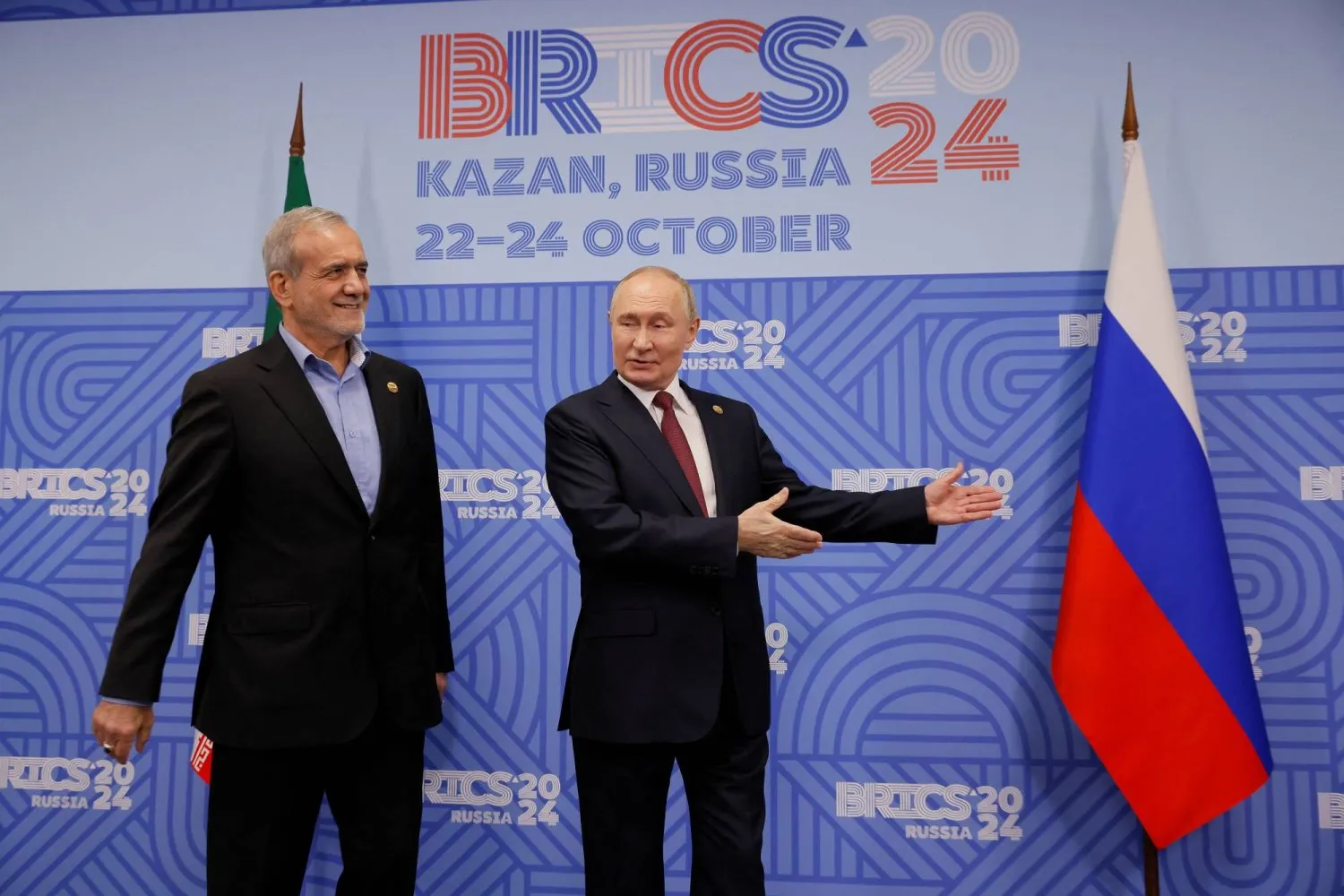Iranian President Masoud Pezeshkian said on Wednesday that the BRICS summit has the potential to eclipse the US-dominated unipolar world, also calling on the group’s members to use their power to end the ongoing conflicts in Gaza and Lebanon.
The meeting in the central city of Kazan is the largest diplomatic forum in Russia since Russian President Vladimir Putin ordered troops into Ukraine in February 2022.
Speaking shortly before he departed for Kazan to attend the BRICS summit, Pezeshkian said the BRICS group was established to create unity and cohesion and to give emerging economies more power and expand their role in world affairs to confront the American totalitarianism.
He also highlighted plans to reach significant agreements in the fields of energy, industry, trade, and tourism during the summit.
In Moscow, Pezeshkian urged on Wednesday members of the BRICS grouping to help “end the war” in Gaza and Lebanon.
“I call on all members of the influential BRICS group to use all their collective and individual capacities to end the war in Gaza and Lebanon,” he said during a speech at the summit.
The Iranian President also described the conflicts in Gaza and Lebanon against Israel as “the most cruel and painful.”
Iran formally this year joined BRICS grouping which takes its name from the initial letters of the five members who joined in 2009 -- Brazil, Russia, India, China and South Africa.
Pezeshkian's remarks came as Iran intensified diplomatic efforts to push for ceasefires in Lebanon and Gaza as well as ways to contain the conflicts.
Iran itself is braced for Israel's promised retaliatory attack after Tehran launched a barrage of around 200 ballistic missiles at Israel on October 1.
Putin on Wednesday told his Iranian counterpart that he wanted to further “strengthen” ties with Tehran, which has been widely accused of sending weapons to Moscow for use in Ukraine.
Putin said the relationship between both countries is progressing positively with a genuinely friendly and constructive nature.
He then said Russian wants to enhance the positive dynamics of trade and economic cooperation with Iran.









